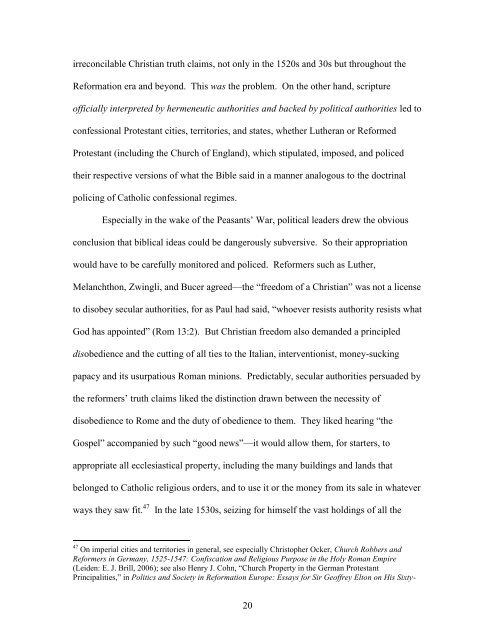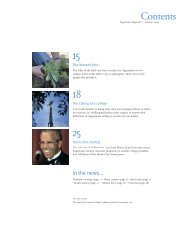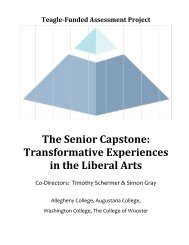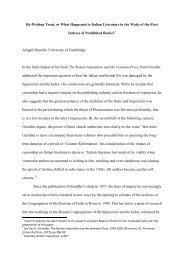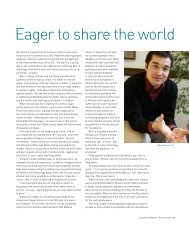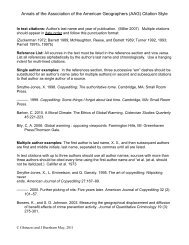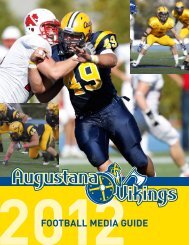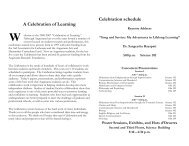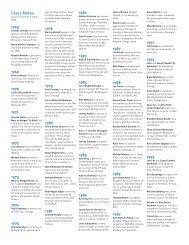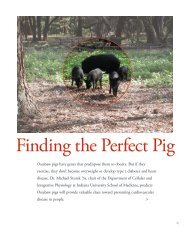Brad S. Gregory - Augustana College
Brad S. Gregory - Augustana College
Brad S. Gregory - Augustana College
Create successful ePaper yourself
Turn your PDF publications into a flip-book with our unique Google optimized e-Paper software.
irreconcilable Christian truth claims, not only in the 1520s and 30s but throughout the<br />
Reformation era and beyond. This was the problem. On the other hand, scripture<br />
officially interpreted by hermeneutic authorities and backed by political authorities led to<br />
confessional Protestant cities, territories, and states, whether Lutheran or Reformed<br />
Protestant (including the Church of England), which stipulated, imposed, and policed<br />
their respective versions of what the Bible said in a manner analogous to the doctrinal<br />
policing of Catholic confessional regimes.<br />
Especially in the wake of the Peasants‟ War, political leaders drew the obvious<br />
conclusion that biblical ideas could be dangerously subversive. So their appropriation<br />
would have to be carefully monitored and policed. Reformers such as Luther,<br />
Melanchthon, Zwingli, and Bucer agreed—the “freedom of a Christian” was not a license<br />
to disobey secular authorities, for as Paul had said, “whoever resists authority resists what<br />
God has appointed” (Rom 13:2). But Christian freedom also demanded a principled<br />
disobedience and the cutting of all ties to the Italian, interventionist, money-sucking<br />
papacy and its usurpatious Roman minions. Predictably, secular authorities persuaded by<br />
the reformers‟ truth claims liked the distinction drawn between the necessity of<br />
disobedience to Rome and the duty of obedience to them. They liked hearing “the<br />
Gospel” accompanied by such “good news”—it would allow them, for starters, to<br />
appropriate all ecclesiastical property, including the many buildings and lands that<br />
belonged to Catholic religious orders, and to use it or the money from its sale in whatever<br />
ways they saw fit. 47 In the late 1530s, seizing for himself the vast holdings of all the<br />
47 On imperial cities and territories in general, see especially Christopher Ocker, Church Robbers and<br />
Reformers in Germany, 1525-1547: Confiscation and Religious Purpose in the Holy Roman Empire<br />
(Leiden: E. J. Brill, 2006); see also Henry J. Cohn, “Church Property in the German Protestant<br />
Principalities,” in Politics and Society in Reformation Europe: Essays for Sir Geoffrey Elton on His Sixty-<br />
20


